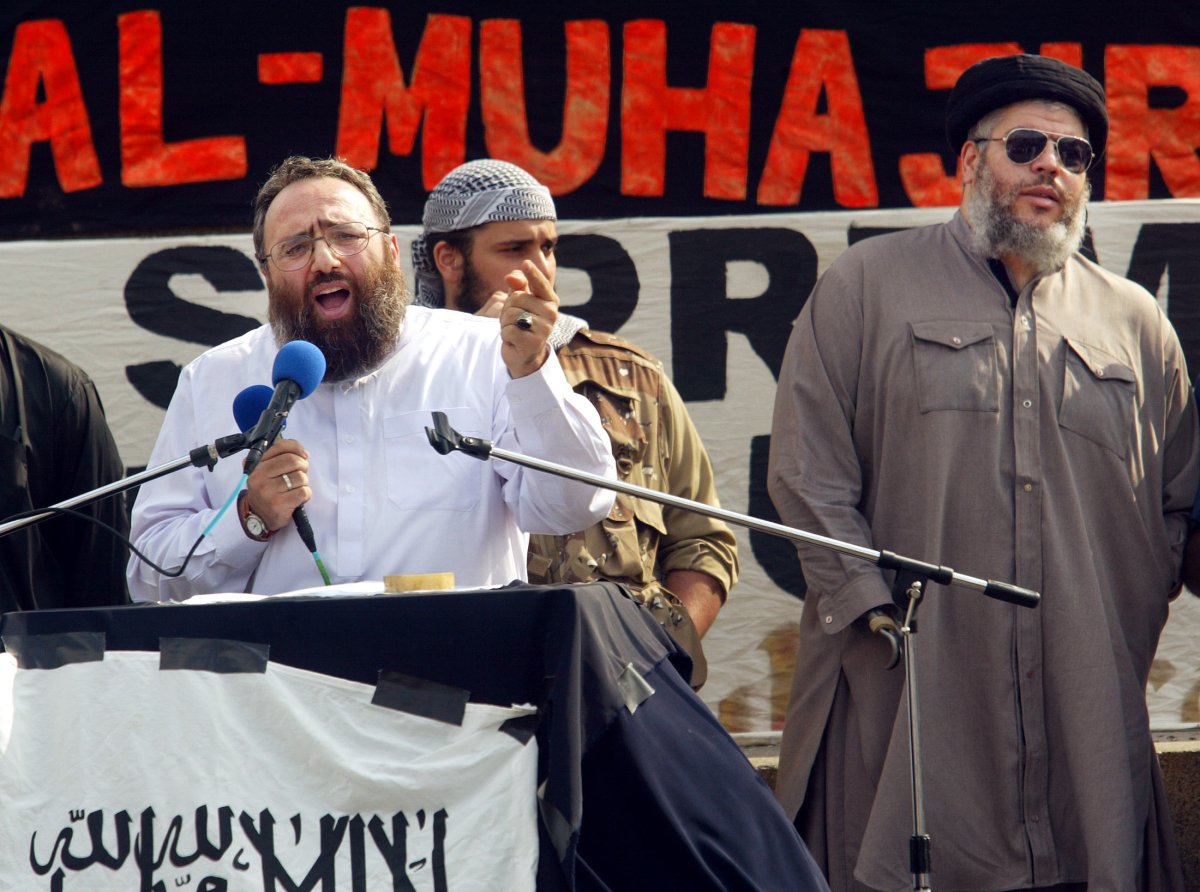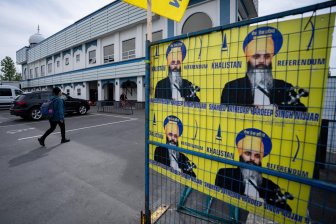At least one of the four people allegedly involved in the horrific murder of a British soldier has been linked to a banned Islamic extremist group.

Anjem Choudary, the former head of extremist group al-Muhajiroun, has identified the Nigerian man seen in amateur video holding a bloody knife and meat cleaver following Wednesday’s attack, as Michael Adebolajo.
Authorities have not confirmed the man’s identity. He was arrested in the south London area of Woolwich, where 25-year-old soldier Lee Rigby was hacked to death in broad daylight Wednesday.
Choudary told London’s The Independent Adebolajo took part in some of the group’s demonstrations in 2003, and had attended lectures by the organization’s founder Omar Bakri Muhammed.
Syrian-born Bakri Muhammed formed al-Muhajiroun in Saudi Arabia in 1983, but the government banned the group three years later. Bakri Muhammed relocated to England in 1986 and reorganized al-Muhajiroun in 1996.
It gained prominence for hosting “The Magnificent 19” – a series of events held around England in 2003 to herald the highjackers who carried out the 9/11 attacks.
Al-Muhajiroun disbanded in 2004, but was reformed five years later. However, the U.K. government outlawed al-Muhajiroun and its offshoot Islam4UK in 2010, under the Terrorism Act 2000. Two other branches, The Saviour Sect and Al-Ghurabaa, were banned in 2006.
- Suspect in killing of temple leader Hardeep Singh Nijjar got student visa in ‘days’
- Cruise ship worker arrested, accused of stabbing 3 people with scissors
- RFK Jr. said worm ate part of his brain, died inside his head: 2012 deposition
- Canadian-Israeli citizen dead in Egypt, local authorities say probe is open
Al-Muhajiroun, or those connected with it, have been linked to at least two bombings – an April 2003 bombing in Tel Aviv and a 2006 blast outside an army barracks in India – and a plot in 2003-2004 to set off fertilizer bombs at various targets in London.
The five men arrested in that investigation were convicted in 2007 and sentenced to life in prison. Britain’s intelligence agency MI5 had been tracking the men, but got the evidence to make arrests after they purchased 600 kilograms of ammonium nitrate.
According to the BBC, the al-Muhajiroun followers recruited members outside mosques in poor areas of England, but as a group it was derided by many Muslim organizations.
Bakri Muhammed, now 55, was regularly condemned in the media — most notably following the July 7, 2005 bombings on London’s transit system, when he said the Brits had only themselves to blame for the attacks that left 56 dead (including the four bombers) and at least 700 injured.
He left the U.K. for Lebanon in Aug. 2005 and was subsequently banned from returning.
The government said it was “not conducive to the public good” for him to be allowed back into the country.
*With files from the BBC, The Associated Press, the Guardian and the Daily Mail.




Comments